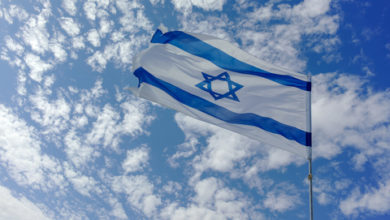Heaven and Earth
Different sectors within Judaism read different versions of the Haftarah for this week’s Torah portion. Ashkenazim read from the verse starting, “And Yaacov fled” [Hosea 12:13], until the end of the book (14:10). The Sephardim and the Yemenites read from “And My nation hesitate about returning to Me” [11:7], until “on the furrows of my field” [12:12]. And some Sephardi communities continue until “… in a parched land” [13:5].
We can search for the essential elements of the Haftarah in verses near sections which are shared by all the different communities, since it is a good assumption that these verses represent the combined strength of all sectors of the nation.
Near the verses shared by the various versions of the Haftarah are two verses that are very similar to each other:
“And I am your G-d from the Land of Egypt, I will yet bring you back in tents, as in past days” [12:10]. “And I am your G-d from the Land of Egypt, you will never know another god, and there is no savior except for Me” [13:4].
The two verses echo what was said in the first of the Ten Commandments, “I am your G-d” [Exodus 20:2], but they omit the phrase “who took you out (of the Land of Egypt).” This shows us that in addition to our obligation to accept the authority of G-d because He took us out of Egypt (see Rashi: “The fact that I took you out of Egypt is sufficient to make you obligated to Me” [20:2]), the Children of Israel also are inherently linked to G-d, even before they received any physical benefit from Him. This link is what is called “segulah” by our sages – an innate unique inner quality. And this rises up at the time of redemption: “He brings the redeemer to their children’s offspring” [from the first blessing in the Amidah; see also the letters of Rav Kook volume 2, pages 186-187]. Our inherent outstanding characteristic does not negate our need for merits, rather it is an element of our most important merit: the fact that we have a unique identity of our own.
The knowledge that “I am your G-d” sets Israel free from bondage, because “only a slave of G-d is truly free” [Rabbi Yehuda Halevi]. As a consequence of our innate freedom, we are involved in two missions: Torah and politics. Economic independence, which came to the fore when Yisrael dwelt in tents around the Tabernacle while eating heavenly manna, facilitated the adoption of the Torah as a permanent possession within Yisrael, corresponding to the first of the two verses quoted above. Sovereign independence is possible for Israel because we do not recognize any other authority over us except for that of the Creator, as is noted in the second verse. It is impossible to be truly faithful to the G-d of Israel without fulfilling these two missions.
It may be that the combination of Torah and political action is hinted at in Jacob’s vision of the ladder at the beginning of the Torah portion, which showed him that even at the time of going out to exile it is possible to link heaven and earth. Torah without political independence, without a political outlook, becomes something that is not relevant to “tikun” – improving the state of the world. The political dimension brings Israel together with its historic mission, which is to reveal that no external means are needed in order to have an encounter with the Creator. All that is necessary is to cling to His nation, which is free and independent.



